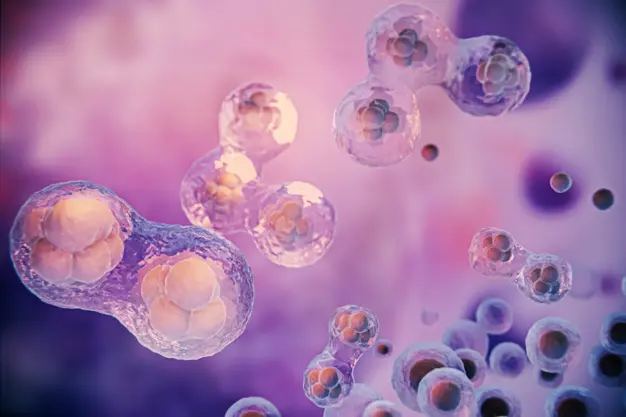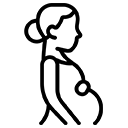 11 Link Road, Lajpat Nagar,
Jalandhar City
11 Link Road, Lajpat Nagar,
Jalandhar City
The process of implantation of sperm inside a woman's uterus to aid in fertilization is known as intrauterine insemination, or IUI.The goal of IUI is to increase the amount of sperm that gets into the fallopian tubes in order to increase the chance of pregnancy. IUI is most commonly performed for those who have donor sperm, unexplained infertility, mild male factor infertility, or cervical factor infertility.
A tiny, flexible catheter is used to introduce a concentrated sample of sperm straight into the uterus during intrauterine insemination (IUI). Usually, this procedure coincides with a woman's ovulation, which can occur spontaneously or occasionally with the use of fertility drugs that encourage the ovaries to release more eggs.
If you are having problems with low sperm count, infertility that doesn't make sense, or problems with cervical factors, IUI is suggested. IUI is a common alternative for many individuals or couples seeking fertility aid because it is less invasive and more economical than certain other assisted reproductive procedures, such as IVF.


IUI is a minimally invasive reproductive procedure. It is less invasive and doesn't require surgical procedure as compared to IVF (In Vitro Fertilization).

IUI raises the quantity of healthy sperm that enter the fallopian tubes, increasing the likelihood of fertilization, by injecting prepared, concentrated sperm straight into the uterus.

IUI gets beyond the barrier that prevents sperm from accessing the uterus in people with cervical problems, facilitating the sperm's travel to the fallopian tubes.

Compared to more complex assisted reproductive technologies like IVF, IUI is often more affordable. It offers a less expensive option for those seeking fertility assistance

With careful monitoring and control over the number of eggs developed, IUI helps lower the risk of multiple pregnancies, which is more common in procedures like IVF.

The procedure is relatively quick and can be performed in an outpatient setting, allowing individuals or couples to resume daily activities soon after the process.

IUI generally has minimal side effects. Some individuals might experience mild cramping or discomfort, but these symptoms typically subside quickly.

IUI can be an effective treatment for unexplained infertility cases where the cause of infertility isn't clear.
In certain situations, a woman may use fertility drugs to stimulate her ovaries and promote the development of several eggs. As an alternative, one could observe the menstrual cycle naturally to ascertain the ideal timing for IUI.
Either a sperm donor or the male partner's semen sample is obtained. Following the removal of debris and non-motile sperm, the sample is treated in a lab to concentrate and isolate healthy sperm.
The prepared sperm is put directly into the woman's uterus using a tiny catheter on the day of the procedure. This procedure is usually short and painless.
IUI is usually performed around the time of ovulation to coincide with the release of eggs from the ovaries. Monitoring using JVS (Transvaginal USG) or changes in cervical mucus can help identify the precise moment.
Following the IUI, certain fertility clinics may offer luteal phase support, which includes progesterone-based drugs to strengthen the uterine lining and boost the odds of successful embryo implantation.
A pregnancy test is performed about two weeks after the IUI to establish whether or not conception has happened. If the procedure is successful, the pregnancy will proceed in the same way that a normal conception would.
In cases when the sperm may naturally struggle to reach the egg, Intrauterine Insemination (IUI) is frequently advised for couples experiencing minor male factor infertility.
In cases where the reason for infertility is unclear, IUI may be a good alternative for a couple experiencing infertility problems.
IUI circumvents the cervix and injects sperm directly into the uterus, which may be advantageous for women whose cervical mucus prevents sperms from moving freely.
In order to increase their chances of conceiving, couples who experience problems with ejaculation, such as difficulties or early ejaculation, may choose to use IUI.
IUI may be suggested as a fertility treatment in cases of minimal to mild endometriosis.
In order to increase the likelihood of a successful fertilization, women who suffer from ovulation disorders—a condition in which eggs are not released on a regular basis—can have IUI with regulated ovarian stimulation.
IUI is a typical fertility treatment for same-sex couples and single women who need assisted reproductive methods in order to become pregnant.
When male infertility is a concern, Intrauterine Insemination (IUI) is commonly utilized to help individuals or couples become pregnant using donor sperm.
IUI is a viable choice for couples looking for a more economical way to conceive because it is typically less expensive than more sophisticated assisted reproductive technologies like in vitro fertilization (IVF).
Aarti Hospital 2026. All rights reserved.